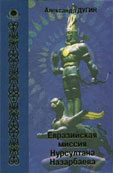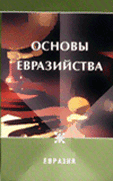 |
|
|||||
|
|
||||||
|
||||||||||||
|
KOSOVO INDEPENDENCE: RUSSIA WARNS OF SEPARATIST STORMFrustration is deep over Western support for independence that Russia sees as destabilizing and against international law.by By Fred Weir |
MOSCOW - President George Bush insists that the tiny Balkan territory of Kosovo's declaration of independence was a "correct move" that will bring peace to the long-troubled region. Russian President Vladimir Putin charges that Western support for the newly declared state, torn from Serbia this week, is "immoral and illegal" behavior that will provoke a global storm of separatism and explode the international order. Seldom has East-West misunderstanding been so stark. Western leaders have tended to dismiss what they see as Moscow's meddling in a distant European territory. But Russian experts from across the political spectrum complain that the West has refused to listen to Moscow's concerns while pursuing their own interests – and that Russia will reap the whirlwind as ethnic secessionist movements throughout the former Soviet Union grow stronger. At the same time, jubilant Russian nationalists claim that "Western betrayal" has freed the Kremlin from any obligation to follow international laws in its own neighborhood. "Russia faces a terrible dilemma now," says Nadezhda Arbatova, a leading scholar at the official Center for European Studies in Moscow. "I'm sure there will now be intense political pressure on the Kremlin to recognize breakaway entities in other former Soviet states, and extend this process to other areas, such as Ukraine," where there are restive ethnic Russian minorities. "I'm very fearful [Kosovo's independence] could have a disastrous impact on our internal situation," she says. Russian ultranationalist leader Vladimir Zhirinovsky, a candidate in presidential elections slated for March 2, welcomed Kosovo's independence with the bombastic claim that "a new division of the world has begun" with the West's demonstration of how to "create new states" from the bodies of older, sovereign ones. Kosovo was seized by NATO in a 1999 war after Serbia was accused of the ethnic cleansing of the tiny territory's mainly Albanian population. Russia opposed the war, but was persuaded to help negotiate a truce following 78 days of NATO air bombardment of Serbia. Russian experts claim that Moscow's envoy, Viktor Chernomyrdin, convinced Serbian leader Slobodan Milosevic to surrender by conveying Western pledges that a NATO occupation of Kosovo would never lead to its separation from Serbia. Now, many Russians feel that Moscow's influence was abused. "That's why there is a real feeling of frustration in Moscow, the sense that agreements [with the West] don't mean anything. They go ahead and change the terms however they wish," says Yevgeny Bazhanov, vice rector of the Diplomatic Academy, the training institute of the Russian Foreign Ministry. "It's not just that it hurts our pride and undermines our status as a respected power; we feel that it's very dangerous," for the world's stability, he says. Russian media have publicized a list of far-flung separatist conflicts that could be affected by the Kosovo events, including Taiwan, the Turkish enclave in northern Cyprus, Spain's Basque region, Quebec, the Kurdish zone in Iraq, Republika Srpska in Bosnia, and Tibet. But, most Russian experts admit, their neighborhood concerns them most.
There are four pro-Russian breakaway statelets on post-Soviet territory. The leaders of two, South Ossetia and Abkhazia in Georgia, were in Moscow this week to press their case for full diplomatic recognition of their de facto independence. But the 1991 breakup of the Soviet Union left large Russian minorities stranded in newly created independent states, as well as many other restive ethnic minorities locked into Soviet-era "autonomous" entities.
International law recognizes two potentially contradictory principles: the inviolability of a sovereign state's "territorial integrity" and the right of stateless peoples to "self-determination." Many of the breakups of recent decades, such as those of Czechoslovakia and the Soviet Union, took place through internal agreement. Even violent changes, such as the disintegration of Yugoslavia, maintained the borders of Yugoslavia's former republics, and breakaway tendencies – such as Bosnia's Serbs – were discouraged. Russian experts say that the involuntary dismemberment of Serbia has shifted the balance of international practice in favor of self-determination. "We know what kind of chain reaction it might cause," says Mikhail Margelov, chairman of the international committee of the Federation Council, Russia's upper house of parliament. "There can be a domino effect, in Europe, the Middle East, and beyond," he says. Russia may be the world's ultimate glass house, with 20 autonomous ethnic republics. One, Chechnya, is still in ruins after its independence bid was put down by Moscow in two brutal wars. Experts say this vulnerability has informed Russia's past insistence on a Kosovo compromise. Now that Kosovo has officially broken away, some still urge caution. "This is a real Pandora's box, and there's no reason to be happy it's been opened," says Gennady Chufrin, vice rector of the official Institute of World Economy and International Relations in Moscow. "If we start recognizing separatist entities, there will be no end to it. The international order, as we have known it, faces collapse." But Mr. Dugin has a harsh response to that: "We should embrace the same double standards that the West practices," he says. "Russia will crush separatism on its own territory even more drastically than before, while supporting pro-Russian separatists elsewhere. It will be easy to explain this to the Russian people. It's the end of so-called morality-based foreign policy; now only power decides." Russia's Foreign Ministry said Tuesday that it has no plans to immediately recognize any separatist statelets. "Kosovo is not the end of the world," says Mr. Bazhanov. "We need to keep our perspective. Soon Russia will have a new president, and next year the United States will get a new one. There is a chance we can turn a fresh page, and nothing is inevitable about conflict." |
Виды цветного металлопроката Воздушные завесы Топас 5 |
||||||||||||||||||||||||||||||||||||||||||||||||||||||


































